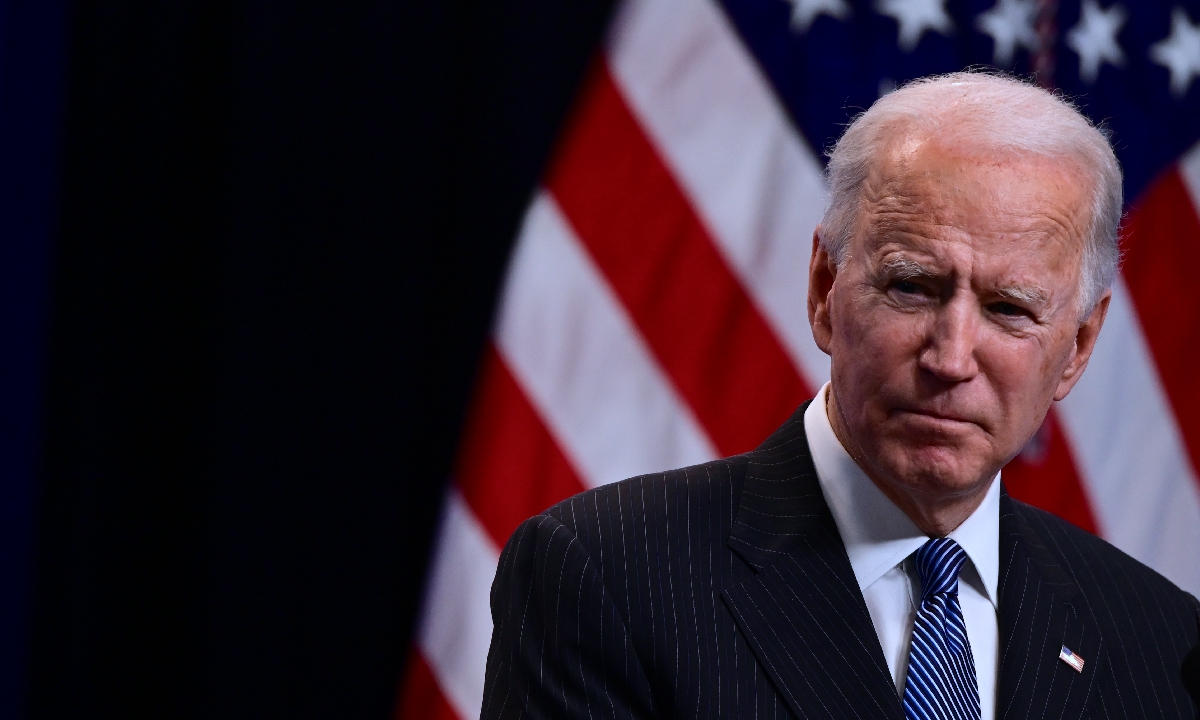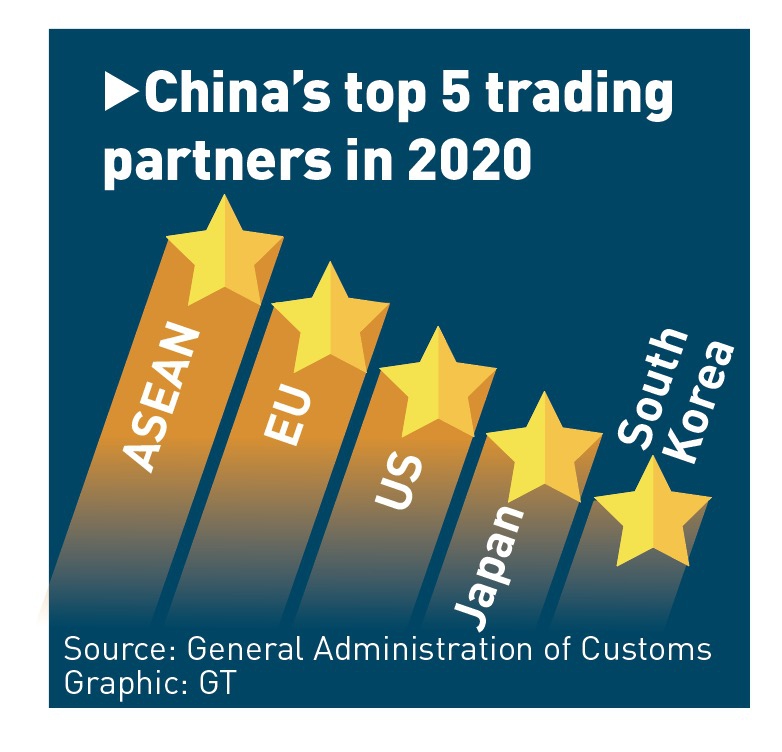Can Biden admin curb China’s rise by cutting off China’s role in the post-virus economic recovery?
Washington aims to unite allies to block the world’s second-largest economy

US President Joe Biden answers questions from the media after signing a "Made in America" Executive Order in the South Court Auditorium at the White House on January 25, 2021 in Washington.Photo: AFP
The Biden administration has been preparing its China strategy, aiming to block China in what analysts call "small, slow yet institutional" steps. On the international stage, Washington is trying to rope other G7 and Western economies to form an alliance to curb the world's second-largest economy. Internally, it has been evaluating supply chains and economic policies involving Beijing in a comprehensive manner.While there is an obvious departure from the former Trump administration's policies, analysts pointed out that Biden will strike a more nuanced tone with Beijing. Unlike Trump, who took a clear stand to decouple with China, Biden's administration will employ "structural means" and unite Western allies to curb what they claim is the "China challenge."
However, it remains unclear whether Washington's call will resonate with its allies. With G7 nations such as Germany and Japan's economic ties with China inching closer, Western economies are trading off between their economic interests and how to maintain relations with their traditional ally, the US, whose reputation sank during Trump's four years of mayhem.
The G7 virtual meeting is set to take place on Friday. According to the White House, US President Joe Biden, along with leaders from the other G7 nations, will discuss the coronavirus pandemic, the world economy and "dealing with China."
"Biden will also discuss the need to make investments to strengthen our [the US'] collective competitiveness and the importance of updating global rules to tackle economic challenges such as those posed by China," said the White House.
Analysts said Biden's speech at the summit aims to deliver a clear signal that the economies of the G7 industrial nations will develop in a robust manner and reclaim their leading roles in driving the world's growth.

Graphic: GT
Also, Washington will attempt to form alliances with the other developed G7 economies to limit or even cut China's role in the post-virus economic recovery, and suppress China's development in strategically important fields such as 5G and digital industries.
The focus on China during the upcoming G7 summit also echoes a slew of rhetoric and moves involving China from the Biden administration in recent days, which an analyst said shows that Washington is evaluating its economic strategies toward China in a comprehensive manner.
Treasury Secretary Janet Yellen said in an interview with CNBC on Thursday that the US will keep tariffs imposed on Chinese goods by the former Trump administration in place, and will "evaluate going forward what we think is appropriate."
Another CNBC report noted that Biden will conduct a review of key US supply chains, including those for semiconductors, high-capacity batteries, medical supplies and rare-earth metals. The report said it will be part of Washington's efforts to determine how reliant the US economy is on Chinese exports.
Cui Hongjian, director of the Department of European Studies from the China Institute of International Studies, told the Global Times on Friday that Biden will try to make US-led Western cooperation mechanisms, such as the G7, play a more important and active role in exerting pressure on China's growth, unlike Trump.
"The G7 nations have an edge in technology and the international division of labor. If they reach a consensus on strengthening high-tech and supply-chain cooperation, they will cement their advantages while depriving China of development opportunities," Cui said.
He added that Biden's strategy will not be a repeat of Trump's China strategy--that is, firing all shots at once. But rather, its approach will be through "long-term institutional means" and involve taking small and slow steps.
However, Chinese analysts described the US and other G7 nations as "strange bedfellows," since their perceptions on China, in particular from an economic perspective, are likely to be drastically different, which could ruin the US' hopes of forming an alliance to curb China's rise.
"Will the favors the US offers be big enough for other Western economies to risk a fray in relations with the world's second-largest economy?" Gao Lingyun, an expert at the Chinese Academy of Social Sciences in Beijing, told the Global Times.
Analysts predicted that Germany might be the first among the G7 economies to not echo the US' call.
"China is Germany's largest auto market. How could the nation abandon China's sheer market size just for empty promises that the US may walk away from at another time?" a Beijing-based industry observer, who preferred not to be identified, told the Global Times on Friday.
China has been the largest trading partner of Germany — a major economy in the EU bloc — for four consecutive years. Last year, China overtook the US as the EU's biggest trading partner. China and the EU also completed negotiations on an epic bilateral investment treaty last year.
Gao stressed that it is vital for Beijing to expand its shared interests with other Western economies. "Also, the scope of bilateral cooperation between China and the US will be broader than that with Trump, and both sides should strive for more common ground," Gao noted.
